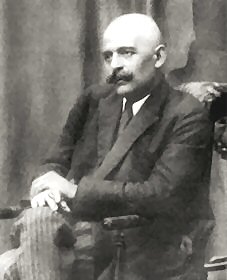Цитата Томаса Манна
Замечательно, как человек не может обобщить своих мыслей даже в самом общем виде, не выдавая себя полностью, не вкладывая в это всего себя, совершенно не сознавая, представляя как бы иносказательно основные темы и проблемы своей жизни.
Связанные цитаты
Молодой человек, который со всей серьезностью занимается организацией своей жизни — своих привычек, своих связей, своего чтения, своей учебы, своей работы, — имеет гораздо больше шансов подняться до положения, дающего ему возможность проявить свои организаторские способности, чем парень, который бездельничает без карты или компаса, без плана или цели, без самосовершенствования и самодисциплины.
Какая крошечная часть жизни человека - его поступки и его слова! Его настоящая жизнь протекает в его голове и не известна никому, кроме него самого. Целыми днями крутится мельница его мозга, и его мысли, а не мысли о других вещах, составляют его историю. Это его жизнь, и они не написаны. Ежедневно получится целая книга из 80 000 слов — 365 книг в год. Биографии — это всего лишь одежда и пуговицы человека, биографию самого человека написать невозможно.
Нет ничего невыносимее для человека, чем быть в полном покое, без страстей, без дела, без развлечений, без учебы. Тогда он чувствует свое ничтожество, свою заброшенность, свою недостаточность, свою зависимость, свою слабость, свою пустоту. Немедленно возникнет из глубины его сердца усталость, уныние, печаль, раздражительность, досада, отчаяние.
Он был врагом без ненависти; друг без предательства; солдат без жестокости; победитель без угнетения и жертва без ропота. Он был государственным служащим без пороков; частный гражданин без ошибок; сосед без упрека; христианин без лицемерия и человек без лукавства. Он был Цезарем без честолюбия; Фридрих без его тирании; Наполеон без своего эгоизма и Вашингтон без награды.
Взаимозависимость есть и должна быть таким же идеалом человека, как и самодостаточность. Человек существо социальное. Без взаимодействия с обществом он не может осознать своего единства со вселенной или подавить свой эгоизм. Его социальная взаимозависимость позволяет ему проверить свою веру и проявить себя на пробном камне реальности.
Когда человека возбуждают собственные мысли, полные желания и сосредоточения на том, что привлекательно, его тяга возрастает еще больше. Он делает оковы еще сильнее. Но тот, кто находит удовольствие в успокоении своих мыслей, упражнении в созерцании того, что отталкивает, и в сохранении собранности, теперь положит конец жажде, он разорвет узы Мары. Его цель достигнута, он без страха, избавлен от страсти и чист. Он убрал стрелы изменяющегося существования. Это его последнее тело.
Разум человека является его основным инструментом выживания. Ему дана жизнь, а не выживание. Его тело дано ему, его пропитание — нет. Его разум дан ему, его содержание — нет. Чтобы остаться в живых, он должен действовать, и прежде чем он сможет действовать, он должен знать природу и цель своего действия. Он не может получить свою пищу, не зная о еде и способе ее получения. Он не может вырыть ров или построить циклотрон, не зная своей цели и средств ее достижения. Чтобы остаться в живых, он должен думать
И он начал видеть истину, что Гед не проиграл и не выиграл, но, назвав тень своей смерти своим именем, сделал себя целым: человеком, который, зная всю свою истинную сущность, не может быть использован или одержим никаким силой, отличной от него самого, и чья жизнь, следовательно, проживается ради жизни, а не на службе разрушения, боли, ненависти или тьмы.
Христианская религия, внешне и даже по намерениям смиренная, учит человека, не сознавая этого, считать себя главнейшим из всех созданных вещей. Человек обозревает звездное небо и слышит своими ушами множественность миров; однако его религия заставляет его верить, что из этих бесчисленных сфер только он один является объектом любви и жертвы своего хозяина.
Но с Шекспиром знакомишься, не зная как. Это часть конституции англичанина. Его мысли и красоты так разбросаны по всему миру, что к ним прикасаешься повсюду; человек близок с ним инстинктивно. Ни один человек с любым умом не может начать с хорошей части одной из его пьес, не погрузившись сразу же в поток его смысла.
Мужчины и женщины созданы друг для друга, но их взаимозависимость различается по степени; мужчина зависит от женщины через свои желания; женщина зависит от мужчины своими желаниями, а также своими потребностями; он мог бы обойтись без нее лучше, чем она без него. Она не может осуществить свое предназначение в жизни без его помощи, без его благосклонности, без его уважения... Сама природа распорядилась так, что женщина, как для себя, так и для своих детей, должна быть на милости мужского суда.
Без Святого Духа христианское ученичество было бы немыслимо, даже невозможно. Не может быть жизни без Животворящего, не может быть понимания без Духа истины, не может быть общения без единства Духа, не может быть христоподобия в характере без Его плода и не может быть действенного свидетельства без Его силы. Как тело без дыхания есть труп, так и церковь без Духа мертва.






































